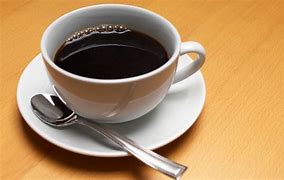Coffee And Its Effects On Us By Pierre Mouchette | Bits-n-Pieces People worldwide have been enjoying coffee since the 15th century. Today, 64% of adults in the U.S. say they drink coffee regularly. We love the taste and what caffeine does for us. It wakes us up in the morning, gives us the energy we need, and can even improve our memory focus. Not only that but there are some physical health benefits, too.
Although there are plenty of benefits to drinking coffee, we cannot ignore the side effects of caffeine. As you might know, too much caffeine can lead to jitters. Because of this, it is common for people to wonder whether caffeine can cause anxiety. What exactly is anxiety? Before jumping into how coffee affects anxiety, let’s look at what anxiety is and its symptoms. Anxiety is a normal human response. Worrying about situations or life events helps to keep us safe from danger. But for people with an anxiety disorder, worrying is more than just a quick response to a scary or difficult situation. People with anxiety disorders worry excessively about all sorts of things, which can get in the way of everyday life. Common symptoms of anxiety include:
What are the effects of coffee and caffeine? Caffeine, an active ingredient in coffee, is a substance that works on the central nervous system (brain and spinal cord). It blocks a chemical called adenosine that causes the alertness that often comes with drinking coffee. But how caffeine works can also lead to other effects on the body that may feel less pleasant. These side effects can kick in between 45 to 60 minutes and last as long as 3 to 5 hours. Side effects vary from person to person but are rarely dangerous. The results depend on how much caffeine one is accustomed to drinking. Body mass and genetics also play a role. Common side effects people experience with caffeine include:
Lowering caffeine side effects If you are struggling with unpleasant caffeine side effects, there are several steps you can take to lessen them.
How much is too much caffeine? According to the FDA, a typical dose of coffee is 400 mg daily or roughly 4 cups. Some people at higher risk from caffeine effects should limit or avoid caffeine altogether. It includes children and adolescents, pregnant or breastfeeding females, and people with underlying medical or mental health problems. Too much caffeine can raise your risk for fast, irregular heartbeats, muscle tremors, and alarm or panic attacks. Caffeine can also affect heart function, become habit-forming, and is linked to substance use like smoking. Do coffee and caffeine cause anxiety? No, coffee and caffeine do not cause anxiety. While the side effects of caffeine and anxiety can be alike, you cannot get anxiety from caffeine directly. But drinking coffee can make anxiety symptoms worse. Research shows that caffeine consumption in people with panic disorder raises the risk of a panic attack and increases anxiety levels. People with anxiety should consider avoiding or limiting coffee and other caffeinated drinks. What can I do if I am worried about caffeine and anxiety? There are options if coffee does not agree with you. There are decaf options for both coffee and tea. If attached to your cup of coffee, try cutting back gradually or keep it for when you need a functional boost instead of as a daily habit. You may also find that espresso or more potent coffee brews affect anxiety more, so you may want to go for the lighter options. Remember, other foods and drinks may have caffeine, too. For example, energy drinks, chocolate, and soft drinks all have caffeine.
0 Comments
Your comment will be posted after it is approved.
Leave a Reply. |
Archives
May 2024
|
